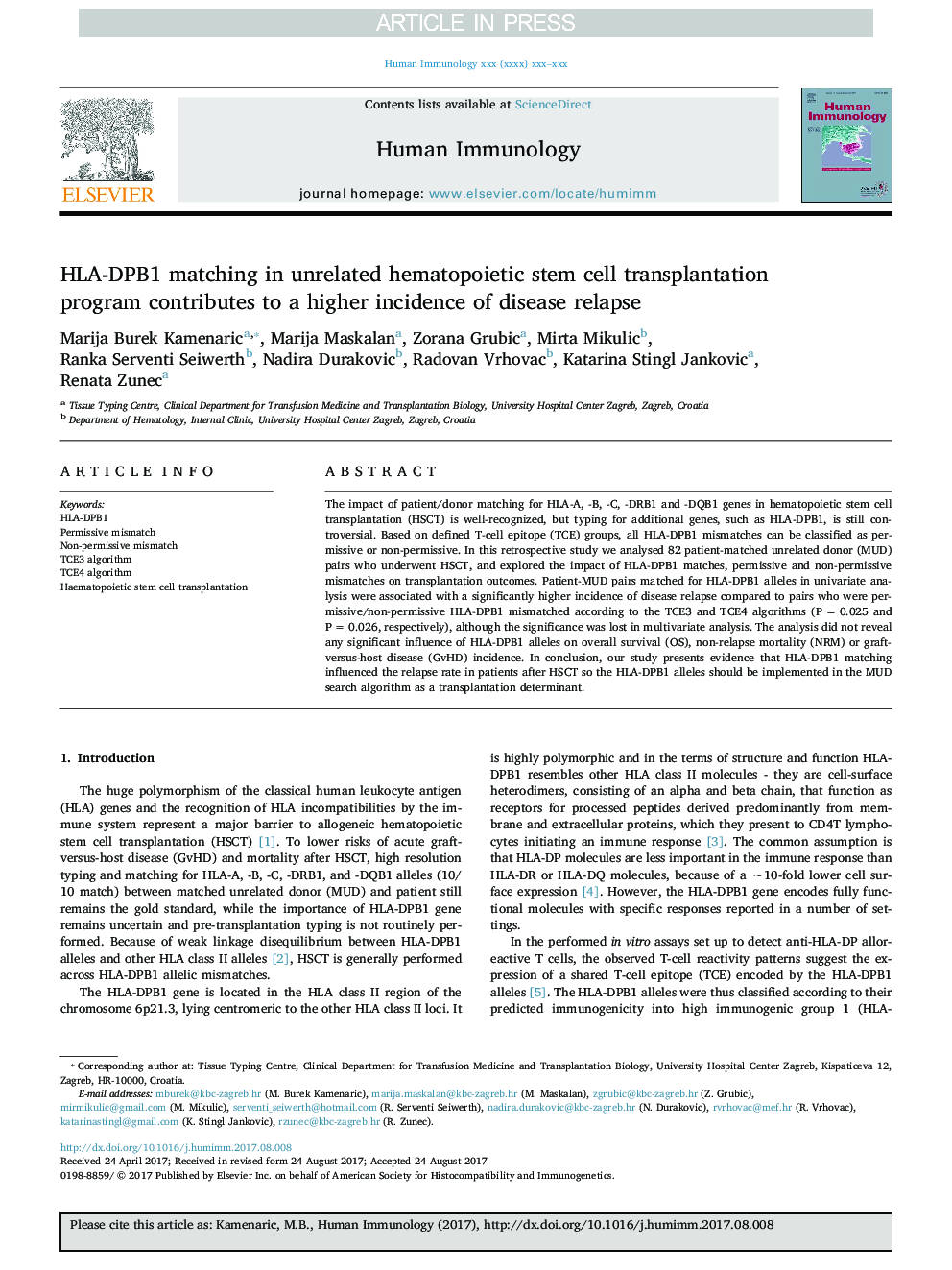| Article ID | Journal | Published Year | Pages | File Type |
|---|---|---|---|---|
| 8737711 | Human Immunology | 2017 | 7 Pages |
Abstract
The impact of patient/donor matching for HLA-A, -B, -C, -DRB1 and -DQB1 genes in hematopoietic stem cell transplantation (HSCT) is well-recognized, but typing for additional genes, such as HLA-DPB1, is still controversial. Based on defined T-cell epitope (TCE) groups, all HLA-DPB1 mismatches can be classified as permissive or non-permissive. In this retrospective study we analysed 82 patient-matched unrelated donor (MUD) pairs who underwent HSCT, and explored the impact of HLA-DPB1 matches, permissive and non-permissive mismatches on transplantation outcomes. Patient-MUD pairs matched for HLA-DPB1 alleles in univariate analysis were associated with a significantly higher incidence of disease relapse compared to pairs who were permissive/non-permissive HLA-DPB1 mismatched according to the TCE3 and TCE4 algorithms (PÂ =Â 0.025 and PÂ =Â 0.026, respectively), although the significance was lost in multivariate analysis. The analysis did not reveal any significant influence of HLA-DPB1 alleles on overall survival (OS), non-relapse mortality (NRM) or graft-versus-host disease (GvHD) incidence. In conclusion, our study presents evidence that HLA-DPB1 matching influenced the relapse rate in patients after HSCT so the HLA-DPB1 alleles should be implemented in the MUD search algorithm as a transplantation determinant.
Related Topics
Life Sciences
Immunology and Microbiology
Immunology
Authors
Marija Burek Kamenaric, Marija Maskalan, Zorana Grubic, Mirta Mikulic, Ranka Serventi Seiwerth, Nadira Durakovic, Radovan Vrhovac, Katarina Stingl Jankovic, Renata Zunec,
